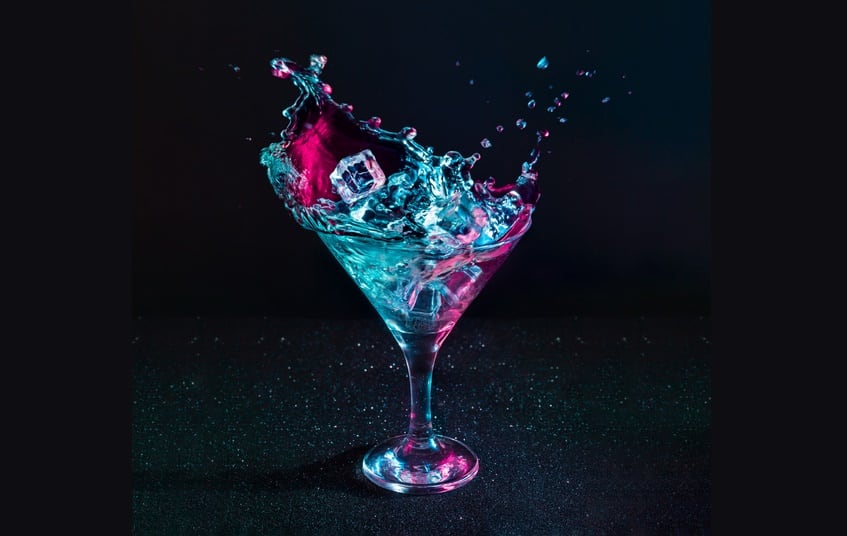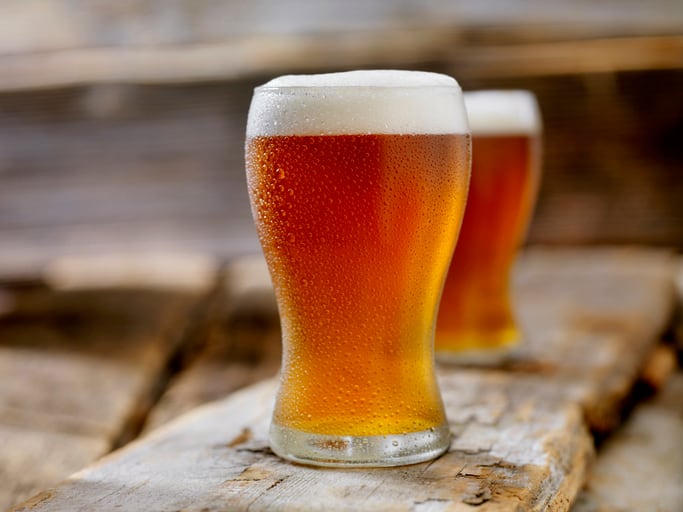A new report, published today from US Surgeon General Dr Vivek Murthy, puts the spotlight on the link between alcohol and cancer – a link that many Americans remain unaware of.
The Surgeon General’s key recommendations echo growing moves around the world for stronger alcohol regulations.
Top 3 cancer risks: Tobacco, obesity and alcohol
Around 72% of Americans regularly consume alcohol (one or more drinks per week), according to 2020 figures quoted by the Surgeon General’s report.
Alcohol is the third leading preventable cause of cancer in the US, coming after tobacco and obesity. There is a direct link between alcohol consumption and at least seven types of cancer, including breast, colorectal, liver and mouth cancer (an estimated 16.4% of total breast cancer cases are linked to drinking alcohol).
There are around 100,000 alcohol-related cancer cases per year in the US.
There are around 20,000 alcohol-related cancer deaths per year: which is, in fact, greater than the number of alcohol-associated traffic crash fatalities (estimated at around 13,500). Alcohol-related cancer deaths shorten the lives of those who die by an average of 15 years.
While the direct link between alcohol use and cancer was first established in the late 1980s, the majority of Americans are unaware of the cancer-related risks of drinking alcohol, says the report.
That’s why the US Surgeon General wants to see cancer risk warnings on alcohol labels, alongside stronger efforts in general to communicate the risks to consumers.
“Health warning labels are well-established and effective approaches to increasing awareness of health hazards and fostering behavior change,” reads the report.
“Considerable evidence supports the use of health warning labels, including promising evidence toward their role in raising awareness about alcohol-related risks.
“For example, a natural experiment in Canada demonstrated that the inclusion of warning labels on alcohol beverage containers resulted in a 10% increase in knowledge about the association between alcohol and cancer after just two months of labeling.
“Additionally, scientific evidence has demonstrated that prominent, pictorial, and rotating messages, compared to less conspicuous, text-only, and static messages, are more effective for influencing awareness and behavior.”
Alcoholic beverages sold in the US must already contain a health warning label, but this has remained unchanged since its inception in 1988 and warns against drinking during pregnancy alongside a general health warning.
Every alcoholic beverage sold in the United States must currently have the following health warning label:
“GOVERNMENT WARNING: (1) According to the Surgeon General, women should not drink alcoholic beverages during pregnancy because of the risk of birth defects. (2) Consumption of alcoholic beverages impairs your ability to drive a car or operate machinery, and may cause health problems
“Given the conclusive evidence on the cancer risk from alcohol consumption and the Office of the Surgeon General’s responsibility to inform the American public of the best available scientific evidence, the Surgeon General recommends an update to the Surgeon General’s warning label for alcohol-containing beverages to include a cancer risk warning,” says the report.
Furthermore, it wants to see the warning labels become more visible, prominent and therefore effective in increasing awareness of cancer risks.
While 47 countries require alcohol warning labels related to health and safety, warning labels for cancer are far less common.
South Korea requires a cancer specific warning. And Ireland’s new alcohol label rules – set to come into effect next year – will require labels to state ‘There is a direct link between alcohol and fatal cancers’ as part of a mandatory health warning on alcohol.
How does alcohol cause cancer?
Ethanol (the type of pure alcohol found in all alcoholic beverages) causes cancer in at least four ways
• First, alcohol breaks down into acetaldehyde in the body. Acetaldehyde is a metabolite that causes cancer by binding to DNA and damaging it. When DNA is damaged, a cell can begin to grow uncontrollably and create a cancerous tumor.
• Second, alcohol generates reactive oxygen species, which increase inflammation and can damage DNA, proteins, and lipids in the body through a process called oxidation.
• Third, alcohol alters hormone levels (including estrogen), which can play a role in the development of breast cancer.
• Fourth, carcinogens from other sources, especially particles of tobacco smoke, can dissolve in alcohol, making it easier for them to be absorbed into the body, increasing the risk for mouth and throat cancers.
The American Cancer Society says it commends the US Surgeon General’s efforts to increase awareness and reduce alcohol-related cancers.
“Today’s advisory from the US Surgeon General brings necessary awareness to the risks of alcohol consumption as it relates to cancer incidence,” said Dr. William Dahut, chief scientific officer at the American Cancer Society.
“Alcohol consumption is the third leading preventable cause of cancer. It is imperative that people are made aware of the potential impact of alcohol consumption and are met with recommendations on how to reduce their risk.”
Kate Oldridge-Turner, head of policy and public affairs at World Cancer Research Fund, added that cancer risk warnings should be considered around the world. “We welcome the US Surgeon General’s Advisory, including the recommendation for health warning labels to be added to alcohol packaging,” she said.
“Despite the fact that our own evidence shows alcohol is a risk factor for at least 7 cancers, it is currently exempt from any mandatory warning labels in most countries. This is of great concern given how few people are aware of the links between alcohol and cancer. Clear, highly visible health warning labels increase consumers’ awareness of the risks associated with drinking, and should be implemented not just in the US but around the world.”
Shares of European and American spirits makers and brewers fell on Friday after the US surgeon general called for cancer warnings on the labels of alcoholic drinks, according to Reuters.
Representing the industry is The International Alliance for Responsible Drinking an organization made up of leading beer, wine and spirits companies including AB InBev, Asahi, Bacardi, Brown-Forman, Carlsberg, Diageo, Heineken, Kirin, Moet Hennessy, Molson Coors, Pernod Ricard, Suntory and William Grant & Sons.
The organization sets out its mission as ‘reducing the harmful use of alcohol... working in partnership with others as part of a whole-of-society approach’.
The IARD had not responded to requests for comment at the time of publication.
In 2020, seven US health organizations (Alcohol Justice, American Institute for Cancer Research, American Society of Clinical Oncology, American Public Health Association, Breast Cancer Prevention Partners, Consumer Federation of America, Center for Science in the Public Interest, and the US Alcohol Policy Alliance) petitioned the Alcohol and Tobacco Trade and Tax Bureau (TTB) to introduce cancer warnings on alcohol labels.
Could US drinking guidelines change?
The current dietary guidelines say adults should limit alcohol consumption at two drinks or less in a day (for men) and one drink or less in a day (for women).
About 83% of the estimated 20,000 US alcohol-related cancer deaths per year occur at levels above these recommended limits, according to the Surgeon General’s report.
Dietary Guidelines for Americans 2020-2025
"Adults of legal drinking age can choose not to drink, or to drink in moderation by limiting intake to two drinks or less in a day for men and one drink or less in a day for women, when alcohol is consumed. Drinking less is better for health than drinking more. There are some adults who should not drink alcohol, such as women who are pregnant."
However, that means the remaining 17% of the estimated 20,000 US alcohol-related cancer deaths per year occur at levels within those recommended limits.
The more alcohol consumed, the greater the risk of cancer. However, for certain cancers, the risk may start to increase from just one or fewer drinks per day.
The Surgeon General’s report suggests recommended limited for alcohol consumption should be reassessed to account for the latest evidence on alcohol consumption and cancer risk.
Updated federal dietary guidelines are due in 2025 and could include new guidelines on alcohol intake limits.
Actions recommended by the US Surgeon General.
• Update the existing Surgeon General’s health warning label to include a warning about the risk of cancer associated with alcohol consumption. Pursue changes to label characteristics to make the warning label more visible, prominent, and effective in increasing awareness about cancer risks associated with alcohol consumption.
• Reassess recommended limits for alcohol consumption to account for the latest evidence on alcohol consumption and cancer risk.
• Strengthen and expand education efforts to increase general awareness that alcohol consumption causes cancer.
• Inform patients in clinical settings about the link between alcohol consumption and increased cancer risk. Promote the use of alcohol screening and provide brief intervention and referral to treatment as needed.
• Highlight alcohol consumption as a leading modifiable cancer risk factor and incorporate proven alcohol reduction strategies into population-level cancer prevention initiatives and plans.



